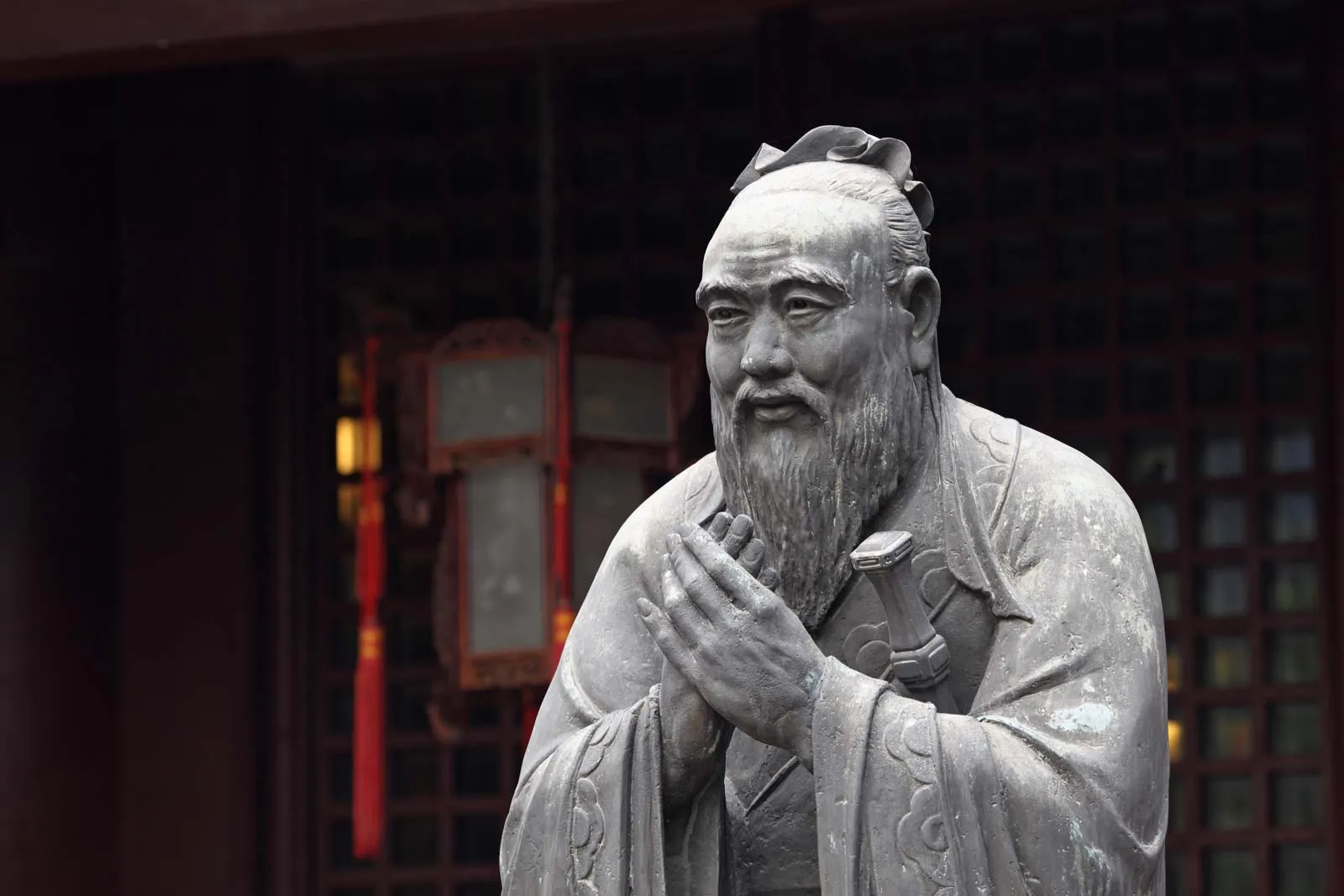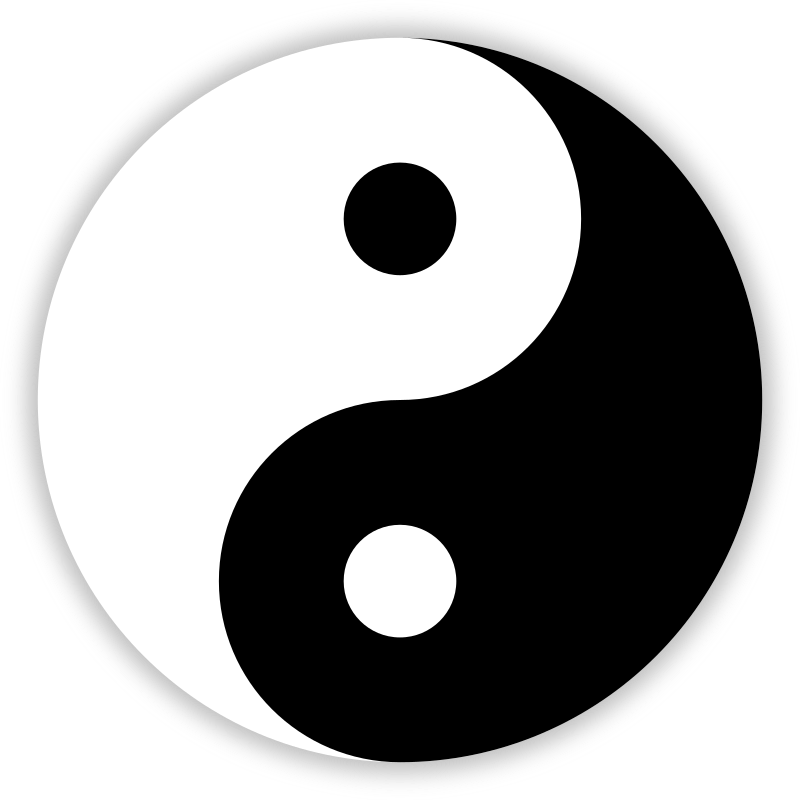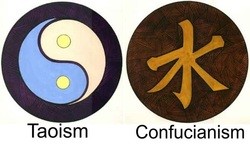TL;DR
-
Philosophy: Confucianism
-
In one sentence: Dealing with people
-
Goal: Increase social practicality, decrease shameful living
-
Focus: Social-awareness
-
Example of extreme application: a politician
-
Sphere of influence: The social world
-
Philosophy: Taoism
-
In one sentence: Dealing with uncertainty
-
Goal: Increase Clarity, Decrease anxiety
-
Focus: Self-awareness
-
Example of extreme application: a farmer
-
Sphere of influence: The natural world
-
Philosophy: The best of both worlds
-
In one sentence: Force of change
-
Goal: Maximize human evolution towards its unrealized potential
-
Focus: Becoming the high-value man
-
Example archetypes : Steve Jobs, Mohammad Ali, Arnold Schwarzenegger, Jordan Peterson, Steve Irwin
-
Sphere of influence: ???
Whom am I speaking to? Who is this going to help?
The ambitious introvert who is between peaceful alone time and a sense of seeking adventure.
My Mind Dump
Confucianism and Taoism are two different philosophical and religious traditions that originated in ancient China. While there is some overlap in their teachings, they have different emphases and approaches.
 Confucianism emphasizes the importance of social relationships, moral values, education, and self-cultivation (the development of one’s mind or capacities through one’s own efforts–similar to modern day “self-help” development and personal growth). It stresses the importance of hierarchies, duty, and respect for authority. Confucianism emphasizes the cultivation of the individual in the context of society, and the idea of “ren,” or benevolence, which involves treating others with kindness and respect.
Confucianism emphasizes the importance of social relationships, moral values, education, and self-cultivation (the development of one’s mind or capacities through one’s own efforts–similar to modern day “self-help” development and personal growth). It stresses the importance of hierarchies, duty, and respect for authority. Confucianism emphasizes the cultivation of the individual in the context of society, and the idea of “ren,” or benevolence, which involves treating others with kindness and respect.
 Taoism, on the other hand, emphasizes living in harmony with nature and the Tao, or the way of the universe. It emphasizes simplicity, spontaneity, and naturalness, and encourages individuals to let go of their attachments to material things and to live in the present moment. Taoism also emphasizes the idea of wu-wei, or effortless action, in which individuals act in accordance with the natural flow of the universe.
Taoism, on the other hand, emphasizes living in harmony with nature and the Tao, or the way of the universe. It emphasizes simplicity, spontaneity, and naturalness, and encourages individuals to let go of their attachments to material things and to live in the present moment. Taoism also emphasizes the idea of wu-wei, or effortless action, in which individuals act in accordance with the natural flow of the universe.
Cases where Confucianism is a stronger strategy than Taoism
- In one sentence: Dealing with people
- Goal: Increase social practicality, decrease shameful living
- Focus: Social-awareness
- Example of extreme archetype: politician, consultant
- Sphere of influence: The social world
- In building strong relationships: This is perhaps Confucianism’s greatest strength, as many of life’s wisdoms place emphasis on working with people and cultivating strong relationships. Confucianism’s emphasis on “ren,” or benevolence, can be beneficial in building strong relationships with others, whether in personal or professional contexts.
- In pursuit of career success: Confucianism’s emphasis on education, self-cultivation, and hierarchies can be beneficial for individuals pursuing career success, especially in fields such as business, law, and politics.
- In living in a highly structured society/city: Confucianism’s emphasis on social relationships, moral values, and respect for authority can be beneficial in a highly structured society, where individuals are expected to fulfill specific roles and responsibilities. If there’s one thing that will survive with humans, it is society–as long as we’re around, a society will always exist.
- In cultivating moral character: Confucianism’s emphasis on self-cultivation, and moral values (e.g. honesty, integrity, and compassion) can be beneficial for individuals seeking to cultivate their moral character and become better people.
Cases where Taoism is a stronger strategy than Confucianism
- In one sentence: Dealing with uncertainty
- Goal: Increase Clarity, Decrease anxiety
- Focus: Self-awareness
- Example archetypes : farmer, monk, trail-blazer
- Sphere of influence: The natural world
- In dealing with uncertainty and change: This is perhaps Taoism’s greatest strength, as change is the only constant is line. Taoism’s emphasis on living in harmony with the natural flow of the universe and letting go of attachments can be beneficial in dealing with uncertainty and change. Taoism encourages individuals to be flexible, adaptable, and open-minded, which can be helpful in navigating unpredictable situations.
- In seeking inner peace and tranquility: Taoism’s emphasis on simplicity, spontaneity, and naturalness can be beneficial for individuals seeking inner peace and tranquility. Taoism encourages individuals to let go of their desires and attachments and to focus on the present moment, which can help reduce stress and anxiety. This can also help in the age where people’s anxiety in the developed world is through the roof.
- In developing creativity and intuition: Often helpful when facing an unknown situation where a creative solution is required. Taoism’s emphasis on spontaneity and naturalness can be beneficial for individuals seeking to develop their creativity and intuition. Taoism encourages individuals to trust their instincts and to embrace their unique talents and abilities, which can help foster creativity and innovation.
- In Pursing self-Actualization: The equinity of Taoism translates to greater clarity on (1) purpose and meaning (2) self-awareness and self-discovery (3) emotional control
How can we combine Taoism and Confucianism?
- In one sentence: Force of change
- Goal: Maximize human evolution towards its unrealized potential
- Focus: Becoming the high-value man
- Example archetypes : Steve Jobs, Mohammad Ali, Arnold Schwarzenegger, Jordan Peterson, Steve Irwin
- Sphere of influence: ???
First recognize that these two philosophies are not mutually exclusive; dealing with people may involve a bit of uncertainty and spontaneity, while seeking to realize creative ideas into society will require a strong understanding of how society, people, and relationships it impacts really works.
Typically, if you find lacking in one area of your life, say social relationships and career stress, that may be a cue to look within yourself to find your goals. Likewise, if you find yourself missing deep connections or a goal bigger than yourself, you may switch your focus on seeking to help society.
The way I see it, an extreme confucianist might represent a high profile Washington DC politician, while an extreme taoist might represent a low-key farmer out in the middle of no where who is highly tuned with nature.
What archetype would sit in the middle? The suburban family.
Update: Upon further reflection, I’ve found that the suburban family is perhaps on the lower impact scale of this “middle zone” between confucianism and taoism–the highest peak is the high value man–essentially, someone who amplifies their gifts to the world in a new and creative way like never before.
Given your thoughts and opinions, what practical actions can we take?
Don’t be an isolated loner, and don’t be a manipulative degenerate.
Somewhere in between those two extremes is a value that the world needs.
